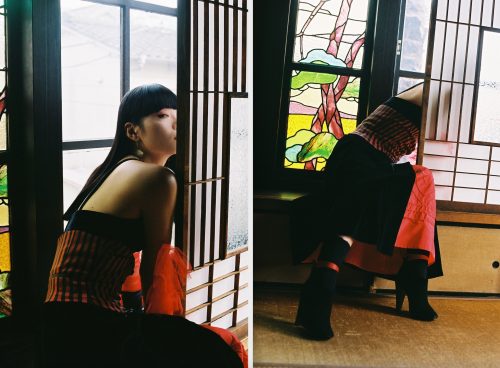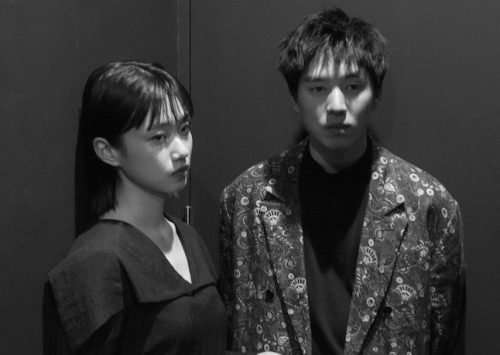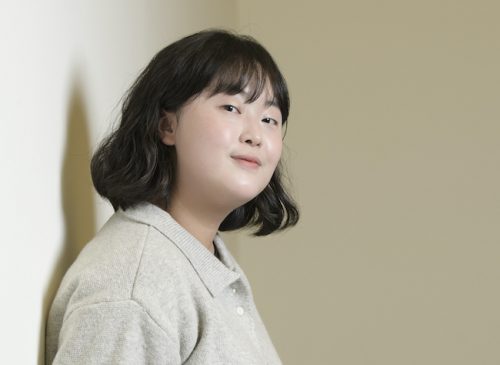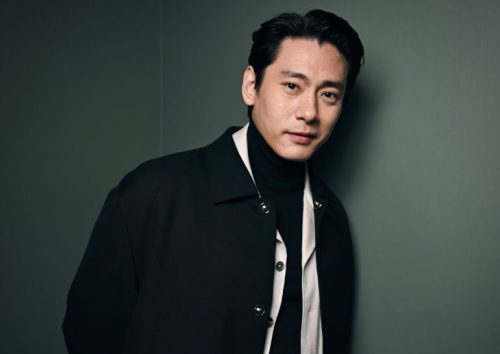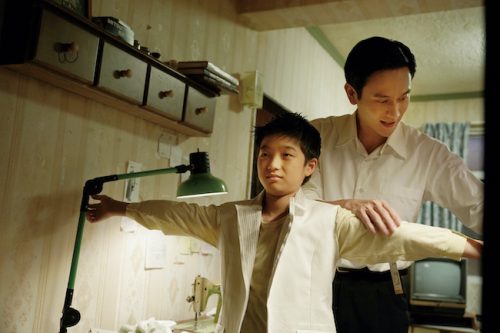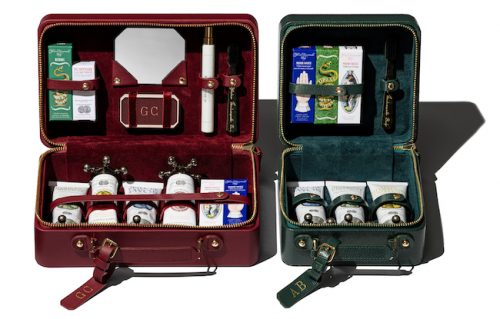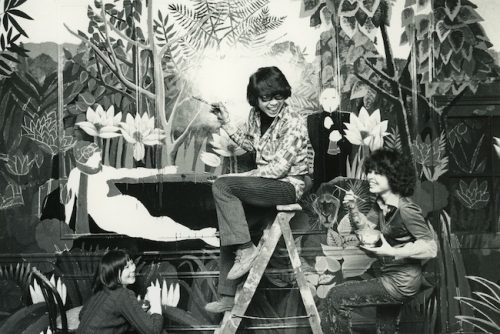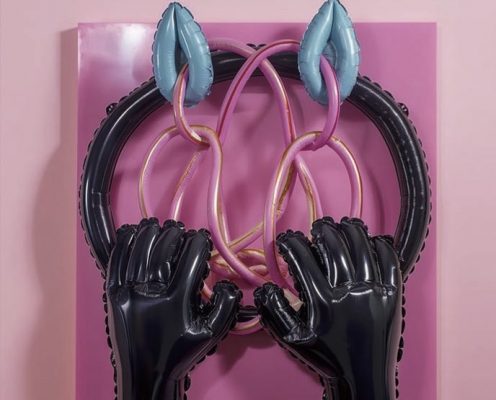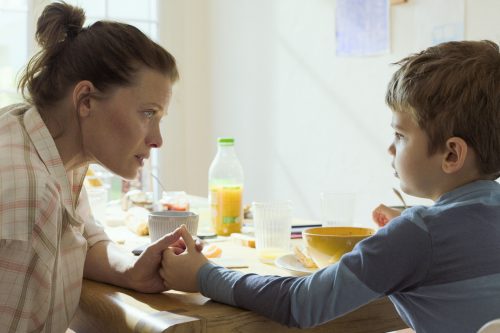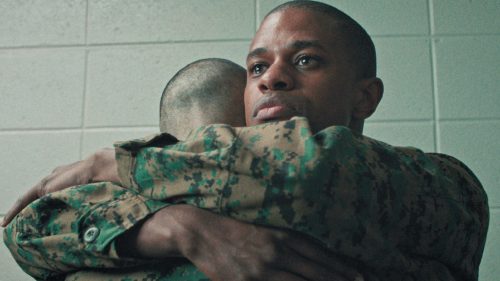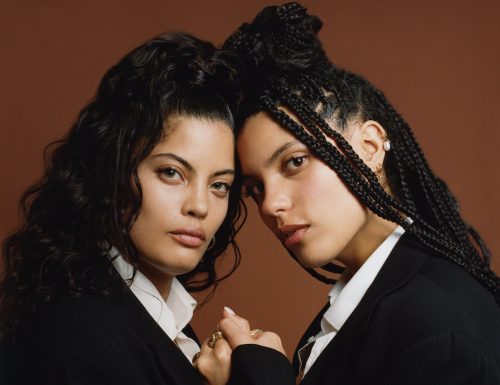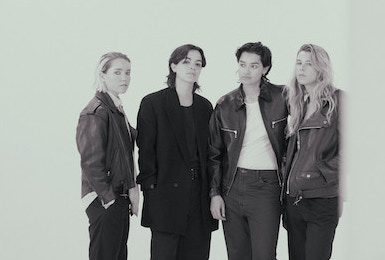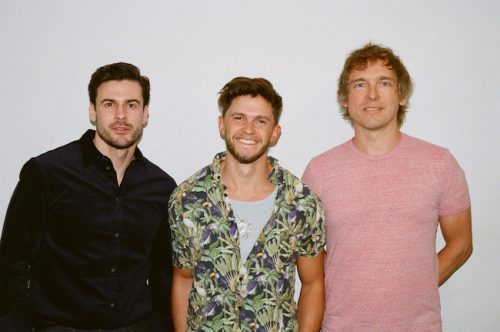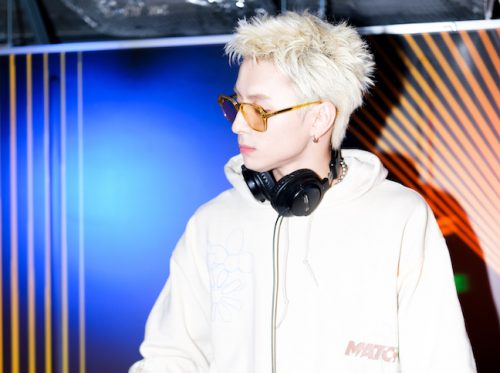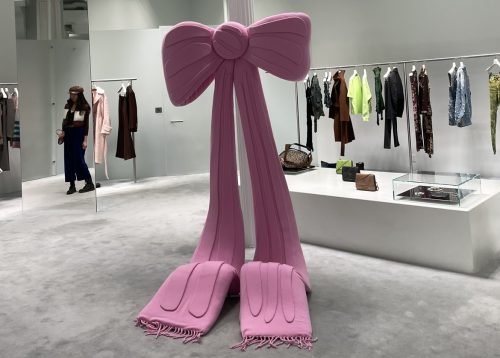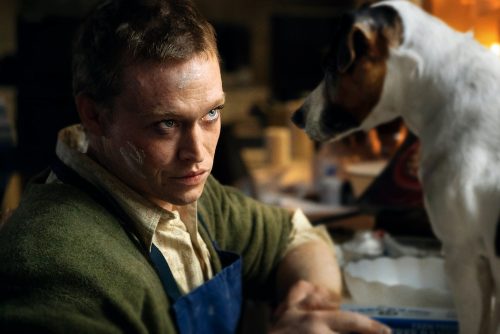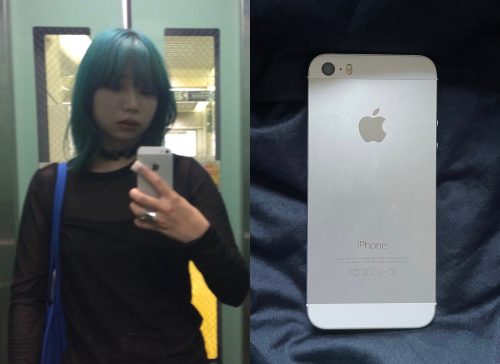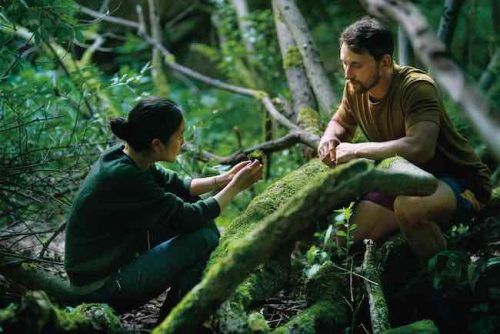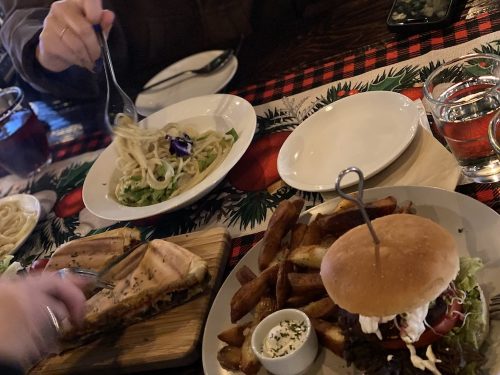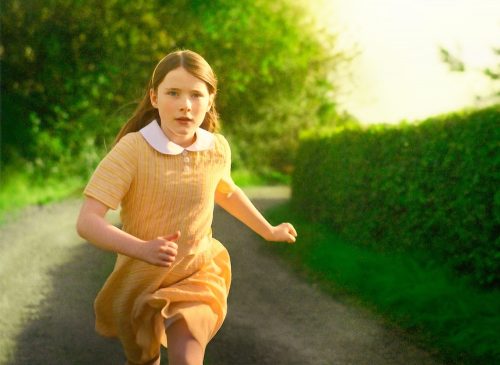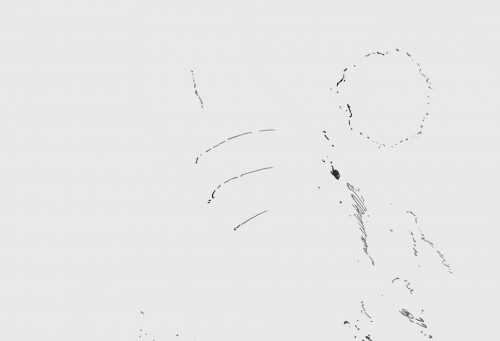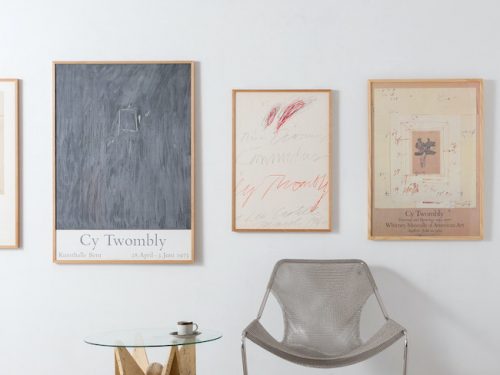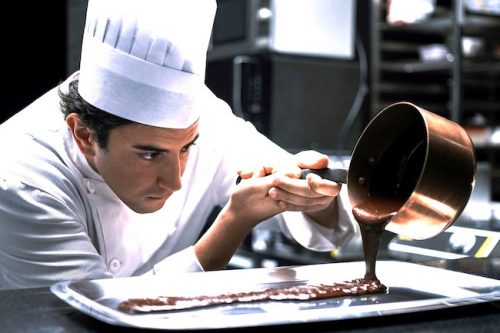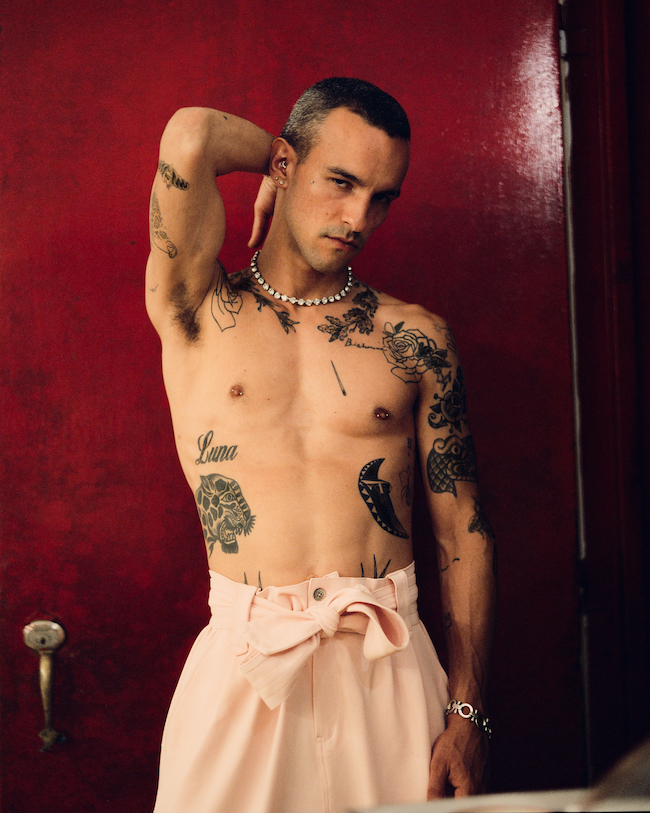
– Hello Gabriel. I still remember your show in Japan three years ago. That show left me such a big impact, so I have been really looking forward to interviewing you this time. The newest album “Aguita” amazed me so much as well but this is our first interview with you so please let me start with some basic questions. I’d like to ask you about musical roots first. How did you get into music? Which artist inspired you as an artist?
Gabriel : My first contact to music was through my mother, I played the violin when I was 6 years old. And I started to play drums and guitar when I was 12. Then around the same time I joined New York City opera children’s choir with my sister. I also started writing songs when I was 12, but they were very hilarious ones (laughs). Then when I was 15, I started writing songs like adults. After that it was pretty slow. At age 19 started writing more then made the first EP when I was 20. Then 25, I put out more records. So anyways, I got into music through my mother. I sometimes learnt from someone or worked with some other people for arrangements , but most of the music I wrote played by myself. So I think it’s just the natural reflection of what I’m into and what I’m capable of.
– What kind of music have you been listening to since you were younger? Any artist who inspired you to be an artist?
Gabriel : Lots of kinds of music. The first CD I bought was the Beatles. Then Red Hot Chili Peppers. It was like late 90’s. Then started to listening to Sugar Ray. Remember Sugar Ray? After that I got more into Nirvana and more rock music, like Jimmy Hendrix. Then hip hop, prince, and then funk music. After that, I got into Cumbia.
– I heard your mother is French, your father is Colombian, and also your mother was a professional musician. I bet you grew up surrounded by lots of types of cultures and art. Do you think that environment has been affecting on your creativity, aesthetic or philosophy in any way?
Gabriel : I think it normalized making music like as a daily activity. And I also think it gave me very good ears for sound. It helps my imagination as a composer. I can imagine the full arrangement of the song when I write music.
– You play many instruments such as the drum, bass, guitar, synthesizer, percussion. Did you teach yourself how to play all those instruments? I also heard you went to SUNY Purchase. Please tell us about the history of your musical education.
Gabriel : I started learning classical guitar towards the end of high school so that I could study music in university because I wasn’t aware of songwriting programs. I only knew about Jazz performance, right? Anyways, so I studied a little bit of classical guitar, and then I had to quit because I was applying to Manhattan School of Music, which is a major conservatory. And I was like, “Well, I’m not gonna be able to get in “ haha. But I self taught piano, and self taught bass. And I had some friends that gave me pointers. One of my friends David Cutler, he told me to keep my hand flat on the base. There’s just moments where people say like if you don’t do this, it’s going to be very difficult. I’ve aways had good people around me and like I always think of him whenever I keep my had flat, you know. Sometimes people say things and every time you do the thing that makes you think of what the person taught you. I normally studied how to play instruments at home. And some at school but not like special music school. High school normally have some music classes. Right? Normally I would ensemble at school and then some drum lessons.
– Your mother was a member of Phillip Glass ensemble, wasn’t she? Classical music and Avant-garde music are big element for your music, and you’re a multi instrumentalist yourself as well. What did you learn you from her you think?
Gabriel : When she was pregnant with me she was doing rehearsals and singing and so I think she was putting me in vibrations a lot. And she taught me to pick an instrument when I was 6 years old. She thinks she just made me feel more natural with music. My mother passed away in 2006 but she’s still here with me. I got really everything music from her. I taught how to play instruments myself a lot but just that foundational feeling of familiarity.
– Mayer Hawthorne played a big role for your debut as a professional musician as he is the one who built a bridge between you and Stones Throw Records. Lots of Japanese fans are familiar with him because he’s been doing something special for Japan such as creating a split single with a Japanese musician Shintaro Sakamoto. Can you share some stories with us about you and him?
Gabriel : Let’s see what was interesting. There as one time he picked me up in a small Mercedes Benz from the 1960’s. He was dressing like a gentleman like wearing hats and shorts and glasses. And he took me to the basement where he’s got all of his records. It’s the collection of his records and maybe was like 20,000 records He got me really high, and played me all those records. All samples of J Dilla. I’ll never forget that because he just sit down and just let the music wash over me. It was a lot of fun.
– Do you guys hang out a lot?
Gabriel : Whenever we both are in New York. We love to eat. So we always go to good diners.
-Wooo That’s amazing! Now let me ask you about your new album “Aguita”. “Aguita” is even more diverse than the previous album “Jardin”, and it feels you’re enjoying making music and singing yourself. What was the musical blueprint of this album?
Gabriel : The ideal was to make a soundtrack. As if it’s where separate artists. The record you can’t believe that the album was made by one person.
– What about the sound? what type of sound did you want to make this time?
Gabriel : The music which is reflecting what I’m into myself. So the album includes some trap and reggaeton. I wanted to something different from last time. I know some genre of music have some rules but I had my own rules. I tried to make music with another mindset. I like doing things completely opposite because I think that’s what reality is and that’s how people are.
– I heard that you’re describing the new album “anti-genre”. You just mentioned those genres but reggaeton or Latin trap which we can hear on ‘Muñeca’ and ’Mira My Look’ can be the new elements compared to the last album I think. I heard that Tierra Whack is one of the inspirations of “Aguita”, but what else did you get the inspirations from? Did you try anything new this time?
Gabriel : So many artists. But I’d say the big inspirations are Bjork, Bad Bunny, and Prince. I still listen to their music. They have no limit. They have so many potentials and can make lots of kinds of sound. I don’t like getting stuck in one thing too. I like artists who don’t have any specific form. I don’t think people are so limited.
– Did you try anything new this time?
Gabriel : Yeah totally. I think I was better at choosing interesting sound out of what I had in the studio this time, like pieces of wood or metal, bass guitar, keyboards. And I used woodwind for the first time. So we had a trombone, and alto saxophone. And clarinet or oboe I forgot, haha. But yeah, I extended it. That is why the sound is more cinematic and orchestral this time.
– This time, you’re using even more types of instruments, and also hiring many more musicians for the recording. How did you choose those instruments and make songs?
Gabriel : I was tired of constricting my output. I was making way more to show people. I thought the music shouldn’t be so limited. I came yo with the ideas of sound, then put the words on it later.
– Tell us about the lyrics and the stories behind. It’s very lyrical and spiritual, but at the same time, you’re talking about death, loss, fear, questions. What’s the motif of the lyrics? What was the inspirations?
Gabriel : ‘Tombs’ is a critique of society. ‘With A Smile’ is like a personal experience of a relationship with something you can’t get away with any sort of addiction. And ‘Meneca’ is just about being a man, and listening to good music and making good music. ‘Fields’ is about battlefield. Any space that has been claimed by any number of parties. This can be in your head or at large. It’s like, think of your position. Nothing worthwhile is easy. You have to get to stand firmly for that thing you got to take a root position and you can’t mind how other people don’t do the same things. Don’t compare yourself to other people. Don’t go by sad agenda. That’s not going to take you to the place you’re trying to go. The motif of the lyrics is in the middle of all this.
– The phrase “Why discuss what we can’t see? Why awaken from a gorgeous dream?” On ‘Tombs’ left me a big impact. What issues are you talking about on this track?
Gabriel : Patriarchy, racism, capitalism, violence, all these things. “Why discuss what we can’t see? Why awaken from a gorgeous dream?” Is just kind of whatever is preventing people from seeing the truth. Publicly and privately.
– You’re singing about your mother who passed away by cancer on the track ‘Moonless’. I think that tack can be the most personal track on the album. How important was it for you to put the song on the new album?
Gabriel : I was just grateful that I could write a song about her. It was moving in the way. I was happy to be able to finally describe that experience. I could’ve have written a song about her earlier but I couldn’t feel that way.
– In ‘Aguita’, you’re singing “ When I wake up, what do I want to hear, what makes me dance and gives me the feeling of victorious celebration?”. The music video of the track draws everyone’s attentions with some eye-catching scenes such as riding on a white horse in jungle, getting tattoos with tractor wheel, and dancing with the dance crew at the climax. Some scenes are provocative and sexual as well. Do you have any interesting episodes from behind the scene?
Gabriel : I think it took 5 months to plan it. Basically, I haven’t been to Pereira for 2 years and haven’t been hanging out or partying with my friends. So by the time I got to Columbia, I just wanted to see everybody. Everyone has motorcycles and bicycles and so all the tricks, and that’s a huge tradition. So we’ve been out there, and that was a really fun day. We came with the van, opened the doors and everyone got out with gears, and I’ve got some make-up and robe on. Then 200 people showed up around us. Then they started doing circles around me. You can see that in the video. That was so much fun.
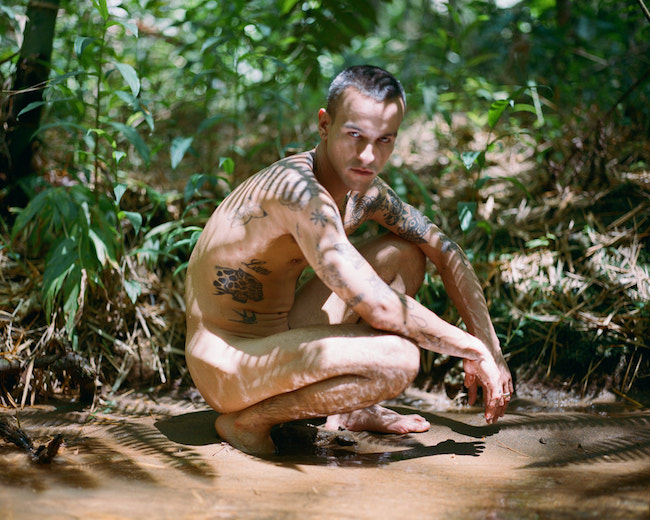
– Because of cover-19 musicians can’r really do much stuff and I heard the lock down is still happening in New York. How are you creating music or doing your musical activities?
Gabriel : We had tour but we had to cancel. But we did tiny desk concert a couple days ago and we have been rehearsaling for that. There’s always something we can do. I really enjoyed working with the dance crew. That was an incredible shoot. The energy was amazing being in the middle of the city. You can see the mountain, too.
– I saw the message you posted on social network in June about Black Lives Matter moment. And now the election is happening in the sates, and we don’t even know what would happen next including the spread of cover-19. Can you give the listeners of “Aguita” a message? If there’s anything you want to try or challenge from now on, what is it?
Gabriel : I want to add more characters. And I want to do a duet between two of the characters. In the music video, they appear together. And the next album, I can have all three in the songs together. And make more genre of songs. People don’t understand the project on the same term but they still refuse to except the world. We still hold on to that and see it all gets connected. Like artists collaborates more internationally. Everybody keeps just finding other cultures and copies that. That is beautiful. So much respect for one another. The message to everyone is “We’re all born naked, the rest is drag” by RuPaul.
text Junnosuke Amai
edit Ryoko Kuwahara
